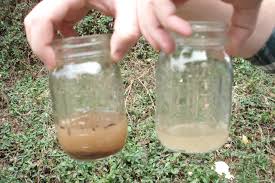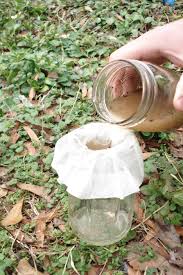
Deilyn Ureña, an Environmental Engineering student at the Tecnológico de Costa Rica (TEC), was awarded the CeNAT-Conare 2020 scholarship. The young woman who is from San Vito, Coto Brus, will have the opportunity to carry out her research project at the National Nanotechnology Laboratory (Lanotec), which is part of the National Center for High Technology (CeNAT).
Ureña obtained this award thanks to her proposal on using coffee bozorola (sediment) in the treatment of drinking water, specifically in filters, for the elimination of contaminants found in water.
The contest consisted of students from the state universities integrated to the National Council of Rectors (Conare), who are close to developing their graduation project or some high-tech research and submit their proposals.
The projects should also be related to CeNAT’s areas of work: geomatics, biotechnology, nanotechnology, new materials, advanced computing, and environmental management (climate change and food security, among others).
With this scholarship, the student will have access to the laboratory and will be able to use the Lanotec equipment, and will also have the support and advice of Dr. Diego Batista Menezes, an expert in this high-tech laboratory.
She will also receive financial compensation, which will allow the purchase reagents, materials, food, and also transportation; so that she can carry out your research.
For the student, the news of having received the scholarship was very gratifying. “Having access to this laboratory and having the support of highly experienced
Professionals, is a great guide to this research process,” said Deilyn Ureña, student of Environmental Engineering at TEC
Also, says Ureña, this award is a good way to publicize the Environmental Engineering degree, which is relatively new in the country and is still in the process of opening spaces in the labor market.
As highlighted by the National Nanotechnology Laboratory site, it works with state-of-the-art engineering in the study of advanced materials for research, design, and training, in technologies associated with microtechnology, nanotechnology, and materials science. It provides its services for different types of industries such as medical, materials, polymers, microbiology, geophysics, and space exploration, among others.
Also, it seeks the development of technologies that allow the improvement of products and processes in the industrial sector, which help to reduce the gap in nanotechnology between developed and developing countries.
Environmental benefits

For Ureña, this research gives her great satisfaction because she will be able to contribute to the quality of drinking water in Costa Rica. But what is the proposal about? Ureña’s research will study the qualities of coffee bozorola, to create a low-cost filter that is capable of adsorbing contaminants found in drinking water and thus preventing many diseases in humans.
The young woman wants her initiative to replace filters based on activated carbon (wood or coconut), since to achieve carbon activation it must be produced at high temperatures, generally in the presence of steam, carbon dioxide or air.
During the research, the student will carry out adsorption experiments and will contact companies related to coffee, to seek data on coffee consumption in Costa Rica about the different varieties available.
Regarding the types of coffee, the young student must classify them by roasting, and with this, she will know the temperature with which the coffee was made. Once the analyzes have been carried out, Ureña will compare its results with those of activated carbon. According to Ureña, the project has a very important focus in the context of a circular economy, since coffee bozorola is produced in large volumes in our country as a by-product.
“It is estimated that for every kilogram of ground coffee processed for the preparation of this drink, two kilograms of waste is generated, thus, and according to the internal consumption of Costa Rica, each year about 46,000 tons are generated of this waste, whose final disposal is in landfills or directly in water sources, which has a high environmental impact,” said the student.
For his part, Dr. Luis Guillermo Romero, who is a tutor in the Ureña research, states that he is very proud of Deilyn and that this research will be a great challenge and will bring positive results in the environmental field.

